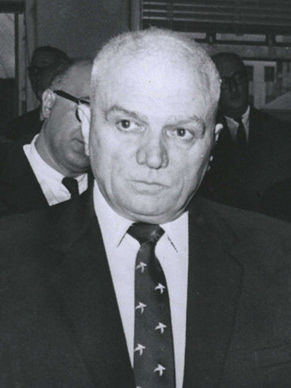Legendary Coaches and Their Training Philosophies
- Austin Jones

- Jun 25, 2024
- 2 min read
Updated: Jul 4, 2024

Combat sports are not just about the fighters, behind every great athlete is a dedicated coach. One who has honed their skills, crafted their strategies, and instilled the discipline necessary for success. These legendary coaches have left an indelible mark on the world of combat sports through their innovative training philosophies and unparalleled expertise. Here, we explore the careers and training philosophies of some of the most renowned coaches in combat sports history.
1. Cus D'Amato
Notable Fighters: Mike Tyson, Floyd Patterson, José Torres
Philosophy: D'Amato was known for his peek-a-boo style, which focused on quick head movements, a high guard, and explosive counter-punching. He believed in the power of the mind, famously stating, "The hero and the coward both feel the same thing, but the hero uses his fear, projects it onto his opponent, while the coward runs."
Training Techniques: D'Amato emphasized mental conditioning as much as physical training. His sessions included rigorous defensive drills, psychological coaching, and instilling an unshakeable belief in his fighters' abilities.
2. Angelo Dundee
Notable Fighters: Muhammad Ali, Sugar Ray Leonard, George Foreman
Philosophy: Dundee was a master strategist, known for his ability to adapt his fighters' styles to exploit their opponents' weaknesses. He was a strong advocate for flexibility and improvisation in the ring.
Training Techniques: Dundee's training sessions were tailored to the individual strengths and weaknesses of each fighter. He focused on honing their natural abilities while improving their tactical acumen, ensuring they could think on their feet during fights.
3. Greg Jackson
Notable Fighters: Jon Jones, Georges St-Pierre, Holly Holm
Philosophy: Jackson is renowned for his holistic approach to MMA, integrating various martial arts disciplines into a comprehensive training regime. He emphasizes the importance of mental preparedness and adaptability.
Training Techniques: Jackson's methods include scenario-based training, where fighters practice specific situations they might encounter in the cage. He also incorporates a strong mental game, with visualization techniques and stress management strategies.
4. Freddie Roach
Notable Fighters: Manny Pacquiao, Miguel Cotto, Amir Khan
Philosophy: Roach's coaching style is characterized by offensive aggression and relentless pressure. He believes in maximizing a fighter's strengths and improving their weaknesses through repetition and refinement.
Training Techniques: Roach's sessions often involve high-intensity mitt work, focusing on speed, power, and precision. He also places a significant emphasis on footwork and positioning to maintain offensive dominance while minimizing defensive vulnerabilities.
5. Henri Hooft
Notable Fighters: Kamaru Usman, Anthony Johnson, Michael Johnson
Philosophy: Hooft's approach is grounded in Dutch kickboxing, emphasizing striking accuracy, combinations, and timing. He believes in simplifying techniques to ensure they are effective under the pressure of a fight.
Training Techniques: Hooft’s training involves repetitive drilling of striking combinations, defensive maneuvers, and maintaining a strong, balanced stance. He also encourages sparring sessions to apply techniques in real-time scenarios.
Conclusion
The influence of these legendary coaches extends beyond the fighters they trained; their philosophies and methods have shaped the evolution of combat sports. They demonstrate that the art of coaching is not just about physical training but also about mental conditioning, strategy, and the ability to inspire and motivate athletes to reach their full potential. By studying their approaches, aspiring coaches and fighters alike can gain valuable insights into what it takes to succeed at the highest levels of combat sports. Fight.TV pays homage to the respect these coaches deserve!



